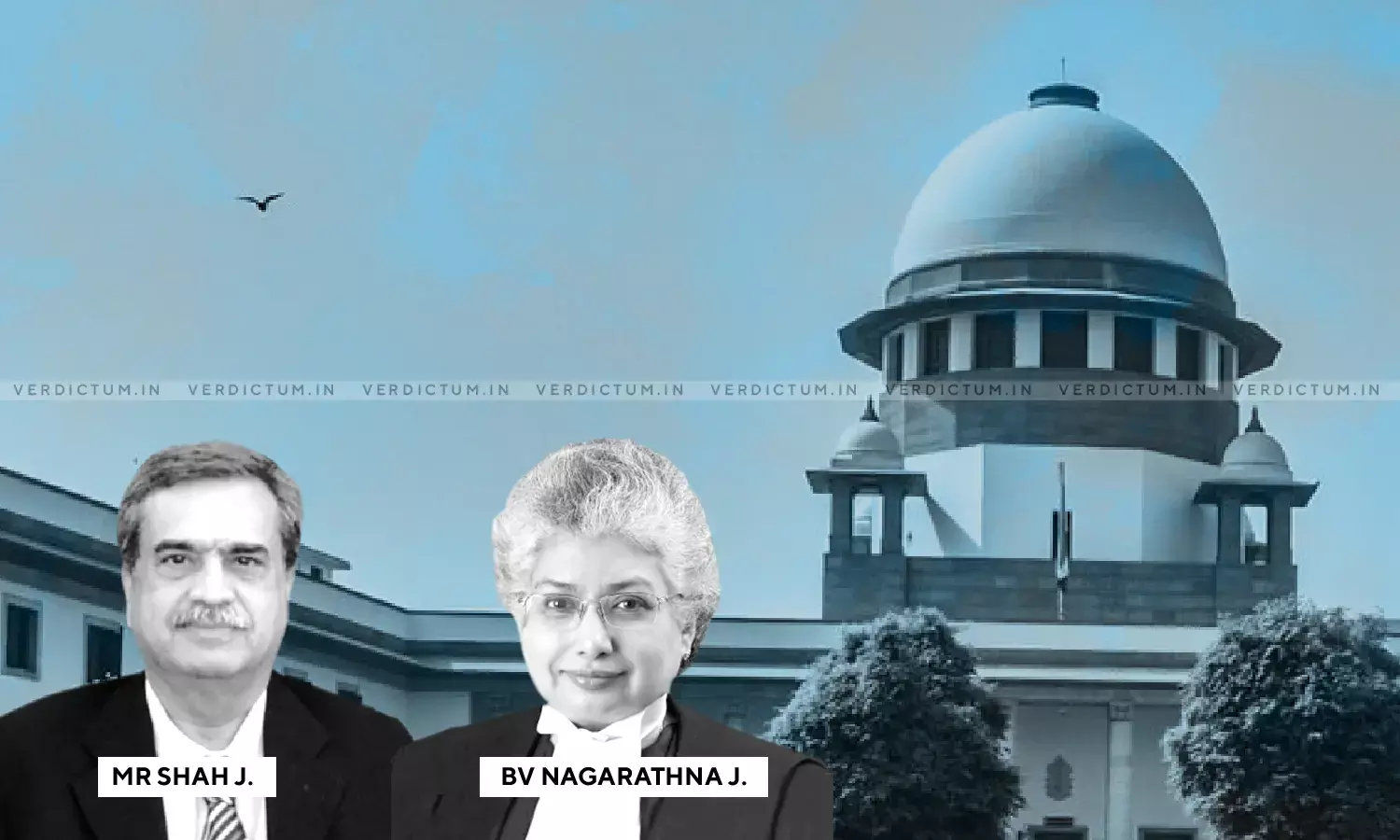Specific Performance- No Adverse Inference Can Be Drawn For Not Producing Accounts, Unless Buyer Was Specifically Asked To Do So: SC

The Supreme Court has reiterated that unless the buyer was specifically called upon to produce passbook, accounts etc. either by the defendant or, the Court orders him to do so, no adverse inference can be drawn.
The Court relied upon its Judgment in Indira Kaur & Ors. v. Sheo Lal Kapoor wherein the Court had set aside the findings whereby an adverse inference had been drawn against the plaintiff therein for not producing the passbook.
"In the case of Indira Kaur (supra) this Court after considering the observations made by this Court in the case of Ramrati Kuer (supra) has set aside the findings recorded by three courts below whereby an adverse inference had been drawn against the plaintiff therein for not producing the passbook and thereby holding that the plaintiff was not ready and willing to perform his part of the agreement. It is observed and held that unless the plaintiff was called upon to produce the passbook either by the defendant or, the Court orders him to do so, no adverse inference can be drawn.", the bench comprising Justice M.R. Shah and Justice B.V. Nagarathna observed.
The Court made this observation while restoring the judgment and decree passed by the Trial Court while allowing the appeal and directed the respondent to execute the sale deed in favour of the appellant.
The Bench comprising Justice M.R. Shah and Justice B.V. Nagarathna held, “… to do complete justice, we direct the plaintiff to pay to defendant No. 1 a further sum of Rs. 10 lakhs to be deposited within a period of eight weeks from today and on such payment, defendant No. 1 is directed to execute the sale deed in favour of the original plaintiff – appellant within a period of two weeks therefrom. Defendant No. 1 shall also be permitted to withdraw the amount i.e., Rs. 9,74,000/- deposited by the plaintiff on 31.10.2011, pursuant to the judgment and decree passed by the learned Trial Court, with the interest accrued thereon, which shall be paid to defendant No. 1 by an account payee cheque.”
The Apex Court said that the Karnataka High Court seriously erred in reversing the findings recorded by the learned Trial Court on the readiness and willingness of the appellant.
Advocate K. Parmeshwar appeared on behalf of the appellant i.e., the buyer while Advocate Shailesh Madiyal appeared on behalf of the respondents i.e., the seller.
Brief Facts –
The respondent/seller executed an agreement to sell in favour of the appellant/buyer agreeing to sell the land for a consideration of Rs. 12,74,000/- whereby Rs. 3,00,000/- lakhs were paid as earnest money. However, they did not execute the sale deed. The seller denied the execution of the agreement via a reply to the notice.
Hence, the appellant filed the suit for specific performance while the respondents denied readiness and willingness on the part of the appellant to perform his part of the contract. Thereafter, the Trial Court decreed the suit for specific performance vide judgment and decree.
However, the High Court allowed the appeal and set aside the judgment and decree passed by the Trial Court, mainly on the ground that the appellant was not ready and willing to perform his part of the contract.
The appellant also filed a review petition but the same got dismissed by the High Court. Therefore, the matter was before the Supreme Court.
The Apex Court noted, “… we are of the opinion that the High Court has materially erred in quashing and setting aside the judgment and decree passed by the learned Trial Court by reversing the findings on the readiness and willingness of the appellant. Under the circumstances, the impugned judgment(s) and order(s) passed by the High Court is/are held to be unsustainable and the same deserve to be quashed and set aside.”
The Court further asserted that if the appellant is directed to pay a further sum of Rs. 10 lakhs towards sale consideration, it will meet the ends of justice.
Accordingly, the Court allowed the appeal and quashed the decision of the High Court.
Cause Title- Basavaraj v. Padmavathi & Anr.
Click here to read/download the Judgment


